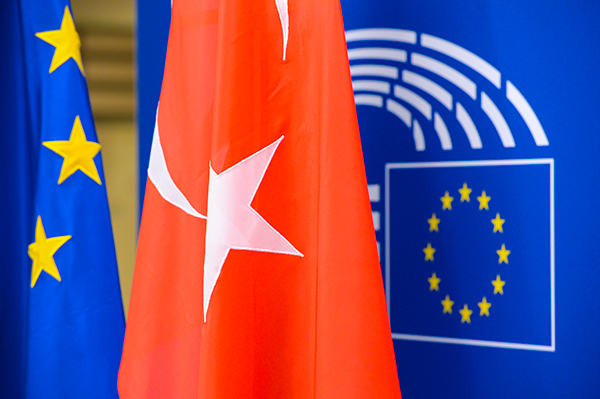
Always business as usual?
Another European Council meeting went by, with no substantial changes regarding Turkey-EU relations. Despite the very high degree of criticism that Turkey has garnered and that its relations with some Member States are at their worst ever, its EU accession framework is still in place and looks like staying that way for some time. The main reason is that there is a mutual acceptance of the status quo, which is a fairly ‘comfortable’ situation for both sides. The EU has no inclination for further enlargement while, with only national electoral concerns in mind, the Turkish government is making no real effort to improve its status as a candidate country. To understand the bigger picture, it is necessary to have a very good comprehension of the history of the engagement between Turkey and the EU, since it is at the heart of many of today’s controversies –although this is far beyond the scope of this post–. However, it is useful to consider why relations are currently in such a deadlock –which could also be called the new status-quo–. As in any case involving international relations, there are two sides to the story. Both European and Turkish political elites are contributing to this new status-quo, and at least for now, they will continue to play their cards. The main problem is that the ‘sticks and carrots’ are ill-defined in this relationship and they are not serving to the needs of both sides.
The European side of the story
European Union is constantly blamed by Turkish government as the responsible of the current situation. It is important to state that the problem is not only country specific, but also related to the use of enlargement policy in general. More importantly, EU’s soft power is challenged in light of the current developments. Once it became clear that the EU was unwilling –or unable– to deal with the deficiencies of the rule of law and basic human rights in Turkey, it was only possible to have technical questions on the table. For this reason, the utmost importance has been given to the modernisation of the Customs Union recently, although even that is in trouble due to relations with Germany and the European Parliament. Having said that, it is also wise to underline the institutional differences present in the case. While the Council is more or less comfortable with the existing status quo – since there are different opinions among Member States regarding how the relations should be, which is preventing a more strict common attitude, the European Parliament has been voicing its concerns very loudly. It has already included a reduction and re-direction of pre-accession funds in its report this year. Current discussions in the Council regarding the issue, even if not reflected in the official conclusions, suggest that EU leaders are both listening to the criticism from the European Parliament and are willing to send a message to the Turkish government. It is visible that there is a certain pressure from Germany in that direction. The ‘stick’ is about to come. Thus, two birds with one stone.
The Turkish side of the story
Turkey has been dealing with internal problems since the failed coup of July 2016 and the April 2017 constitutional referendum is a further issue that has been occupying the headlines. With one of the most important electoral years coming up in 2019 –comprising local, national and presidential elections–, even short-term foreign policy decisions are being taken with reference to domestic politics. In addition to such a backdrop, it also seems fairly evident that the government has no real enthusiasm for joining the EU, despite frequent statements to the contrary. The real problem is with the ‘carrots’, since for Turkey the accession process has been very disappointing from the very beginning. The most important carrot, ‘visa liberalisation’, is no longer that significant and the modernisation of the Customs Union agreement is facing constant setbacks. Given the situation, without any real incentives in sight, the government is not ramping up its efforts to gain membership.
It takes two to tango: why no substantial changes are likely for now?
The summit conclusions only devoted one sentence to the debate about Turkey: ‘the European Council held a debate on relations with Turkey’. The underlying message was very clear and was made explicit by the European Council President Donald Tusk: ‘We want to keep the door open to Ankara but the current reality in Turkey is making this difficult’. The reason why the door is kept open has often been stated, despite beginning to sound like a cliché: Turkey’s role in controlling illegal migration and in the fight against terrorism is making it an indispensable player. There is a certain bilateral dependence and a clear need for cooperation. On the other side of the coin, Turkey is the EU’s fourth-largest export market and its fifth-largest provider of imports, while the EU is by far Turkey’s number-one trade partner. In short, Turkey is a neighbour country with strong economic ties to the European Union and regardless of the framework of relations, this fact will never change.
In the absence of extraordinary events, the next important ‘date’ for Turkey and the European Commission will be in Spring 2018, when the latter’s annual report is due for publication. It is clear that accession negotiations are at least providing a platform for dialogue with Turkey. Still, it is not fully serving the necessities of both sides and should be revisited. While doing so, it is important to keep in mind that the European Union will be changing and evolving in the near future and there is always a possibility that the future Turkey may find itself an accurate place in the future EU. In short, this story is not over.


